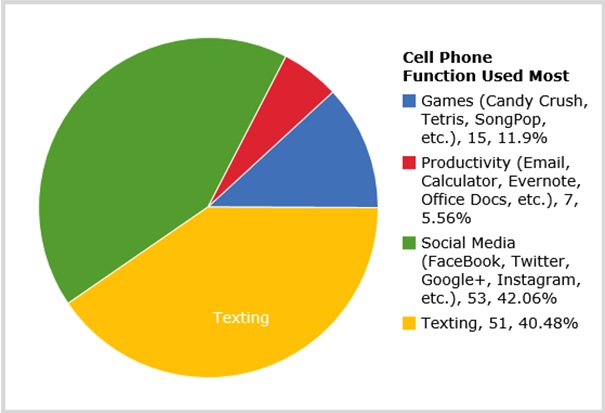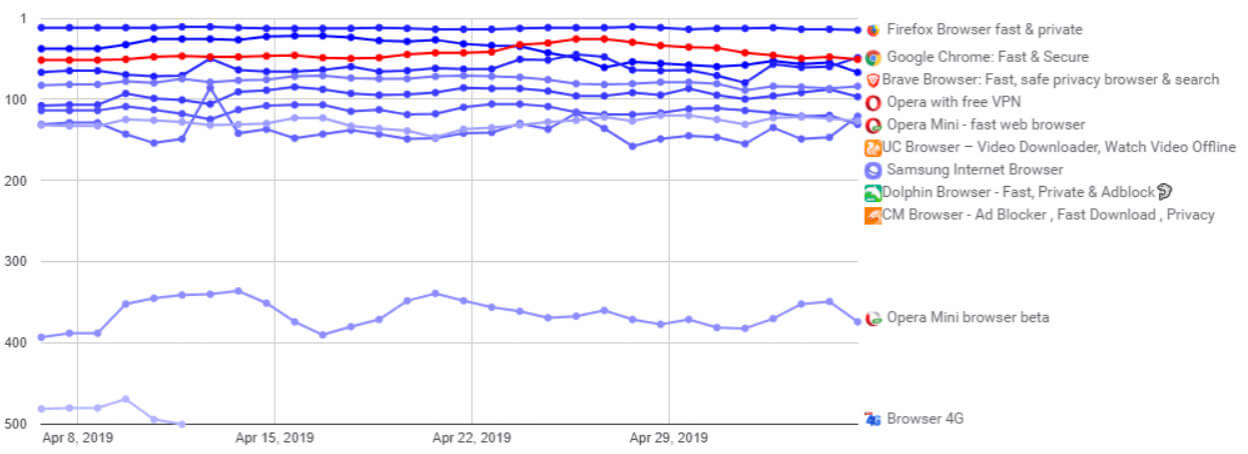
2019-7-6 11:12 |
Coinspeaker
Avoiding Prying Eyes: Glimpsing Into the Future of Mobile Privacy Powered by Blockchain
Over time, technology has eroded our privacy protection due to the level of connectivity. The case remains that most things we do on our mobiles or even things that organizations do are now in the public domain. It is increasingly popular for third-parties to monitor, store and use personal and organizational data to gain insights into our behavior.
They use them to spot trends, set user preferences and track activities. In some cases, business models rely on the collection of personal and organizational data for the purpose of reselling.
The graph below is a representation of how user data can give us better insight into the use of technology today.
Photo: StatCrunch
Due to the vastness of technology, it has also made it easier to link data back to specific individuals. This is true even if the individual opts out of social networking platforms. One piece of technology that could help overcome this is blockchain.
It could help limit the impact of this erosion of privacy while releasing personal information only when it is needed. This has potential as users could have the possibility of storing sensitive information on a blockchain and retrieve relevant parts of it when needed. For instance, if blockchain is utilized across border security, only the relevant information like your name, photo, and immigration status is released to the agent.
Services such as Bitcoin and blockchain-based digital currencies have demonstrated that trusted and transparent computing is possible, especially using a decentralized peer-to-peer network.
Outside of Bitcoin, blockchains have proven to have many uses beyond secure management of digital currencies. Due to the nature of blockchain and its processes, it makes fraud incredibly challenging to carry out. This means that blockchain can be used to prove the authenticity of anything that goes through it, including transactions.
Blockchain can help with mobile privacy by offering a range of different elements to mobile networks.
The use of blockchain is capable of offering network operators more privacy, reduce transaction costs and help make them more secure without being traceable. This will not only prevent network intrusions but will offer customers more privacy and security, especially when you consider the fact that most Americans are more afraid of their data being stolen by hackers that be the victim of a violent crime.
Photo: TheBestVPN
Due to the nature of blockchains and its hard to trace and track levels of encrypted data, blockchain can provide mobile privacy on a variety of different functions, especially when it comes to payment-related actions, such as online shopping.
Updates to original mobile software offered by companies using blockchain can also help mobile privacy.
Recently, Apple released another update to its intelligent anti-tracking feature that blocks 3rd party cookies and makes it difficult for advertising tech companies to track a person’s internet browsing data in order to serve ads and retarget customers. Thus, stepping up the privacy can help it move into the future.
However, phone carrier companies have still a long way to go to protect its customers for unwanted surveillance, theft and data breaches.
UpGuard conducted research where they measured things like SSL encryption, email verification and breach history of main phone carriers, giving a score to each one.
Photo: UpGuard
As you can see, most carriers have a long way to go to enhance security and privacy – as long as they’re actually interested in protecting their customers.
Petr Malyukov, Co-Founder and CEO at Irbis Network (SafeCalls), says:
“The market is yet liable to multiple flaws – intermediary links, excessive expenditures and tech lagging.”
The focus on security and the importance of it is a clear indication of how problematic the issue is today. There have been many cases where the dab hand of intelligent hackers has been blamed for changing the course of reality. One of the most significant cases most recently has to be in politics and the use of personal data to alter elections, resulting in forged and untrustworthy results. Due to this reason, the concern of mobile privacy has increased rapidly.
Blockchain technology, of course, as we know, can help to tackle these issues and create a safer and better environment around the use of mobile phones and the privacy they can provide.
Avoiding Prying Eyes: Glimpsing Into the Future of Mobile Privacy Powered by Blockchain
origin »Bitcoin price in Telegram @btc_price_every_hour
Universal Mobile Token (UMT) íà Currencies.ru
|
|
























